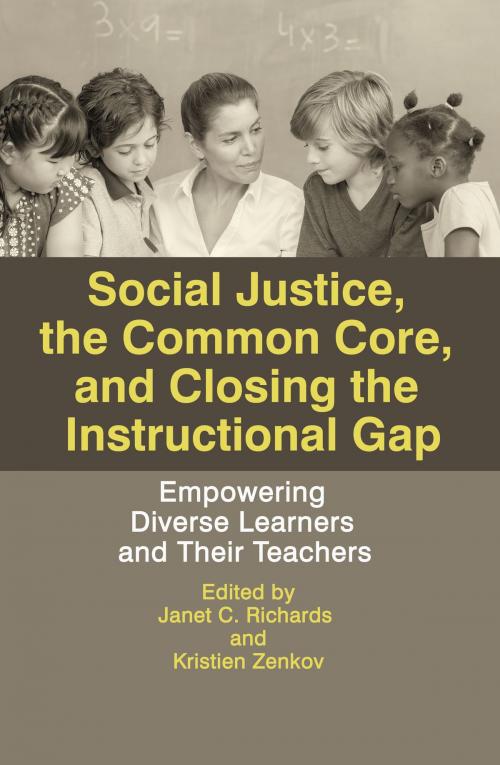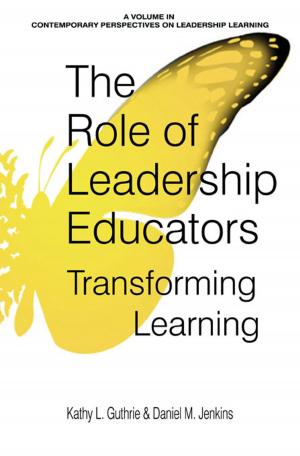Social Justice, the Common Core, and Closing the Instructional Gap
Empowering Diverse Learners and Their Teachers
Nonfiction, Reference & Language, Education & Teaching, Educational Theory, Curricula, Teaching, Teaching Methods| Author: | ISBN: | 9781681232324 | |
| Publisher: | Information Age Publishing | Publication: | October 1, 2015 |
| Imprint: | Information Age Publishing | Language: | English |
| Author: | |
| ISBN: | 9781681232324 |
| Publisher: | Information Age Publishing |
| Publication: | October 1, 2015 |
| Imprint: | Information Age Publishing |
| Language: | English |
There is little doubt that the Common Core State Standards (CCSS) are a controversial entity. They are provocative for the way in which they have been developed, for the ways they are being implemented and evaluated, for their content, and for their failure to explicitly consider the needs, interests, and histories of diverse populations. While the CCSS continue to be problematized by critics around the country—including the editors of this volume—it is evident our nation is moving toward (some would argue we have arrived at) a national set of standards and/or a national curriculum. This text will be an important volume for multiple audiences, in large part because it will bring together critical perspectives on the CCSS and the notion of national standards/curricula. It will simultaneously provide a social justice orientation as a way to interpret the CCSS and respond to their limits, while presenting practical examples of social justice?oriented, CCSS?focused curricula that empower diverse learners and their teachers. Social Justice, the Common Core, and Closing the Instructional Gap will consist of chapters by classroom teachers and university scholars who portray honest, engaging, first?person accounts of their successes and challenges connecting a social justice pedagogical orientation to the Common Core State Standards. These authors candidly and passionately share the challenges of navigating between a social justice curriculum and high stakes standards? and test?driven environments. They highlight their accomplishments that include effectively supporting students to consider social injustices and devise plans to work toward a more equitable world.
There is little doubt that the Common Core State Standards (CCSS) are a controversial entity. They are provocative for the way in which they have been developed, for the ways they are being implemented and evaluated, for their content, and for their failure to explicitly consider the needs, interests, and histories of diverse populations. While the CCSS continue to be problematized by critics around the country—including the editors of this volume—it is evident our nation is moving toward (some would argue we have arrived at) a national set of standards and/or a national curriculum. This text will be an important volume for multiple audiences, in large part because it will bring together critical perspectives on the CCSS and the notion of national standards/curricula. It will simultaneously provide a social justice orientation as a way to interpret the CCSS and respond to their limits, while presenting practical examples of social justice?oriented, CCSS?focused curricula that empower diverse learners and their teachers. Social Justice, the Common Core, and Closing the Instructional Gap will consist of chapters by classroom teachers and university scholars who portray honest, engaging, first?person accounts of their successes and challenges connecting a social justice pedagogical orientation to the Common Core State Standards. These authors candidly and passionately share the challenges of navigating between a social justice curriculum and high stakes standards? and test?driven environments. They highlight their accomplishments that include effectively supporting students to consider social injustices and devise plans to work toward a more equitable world.















